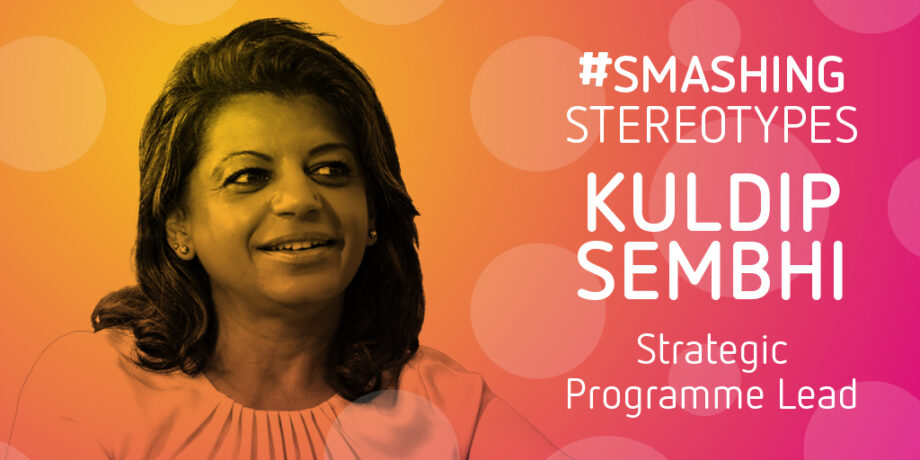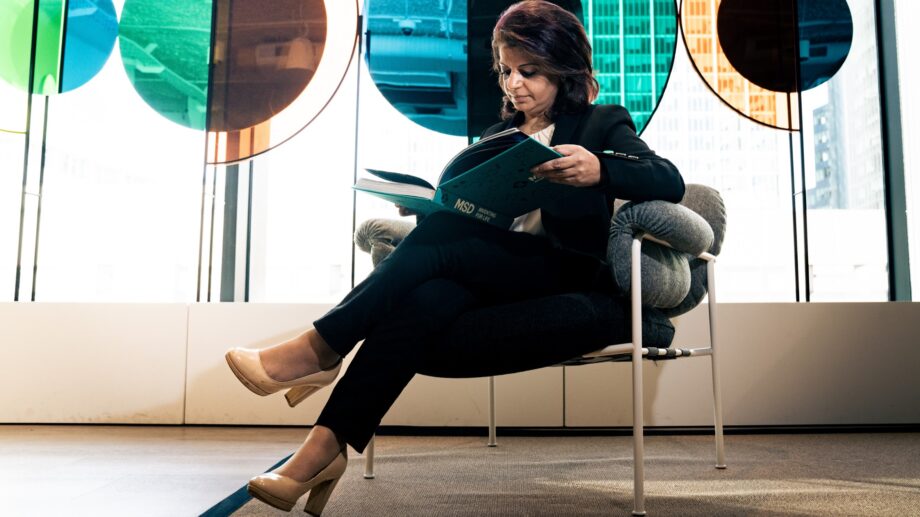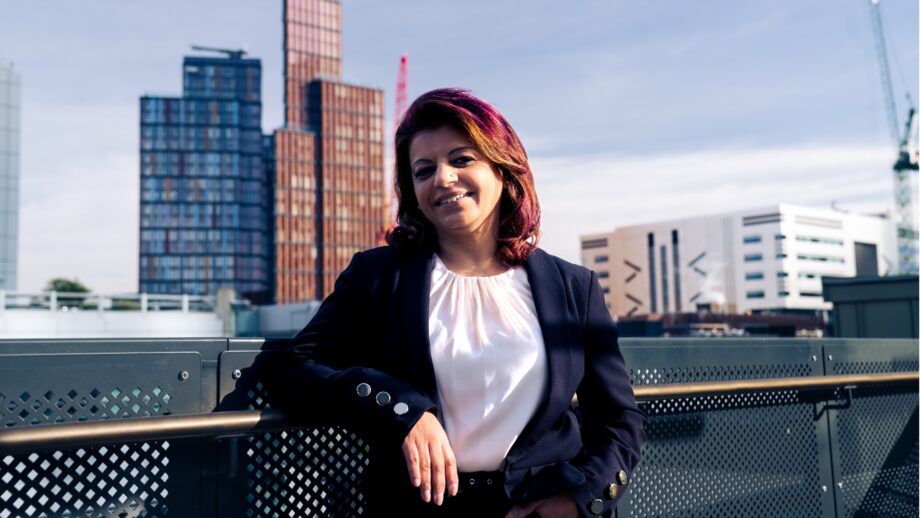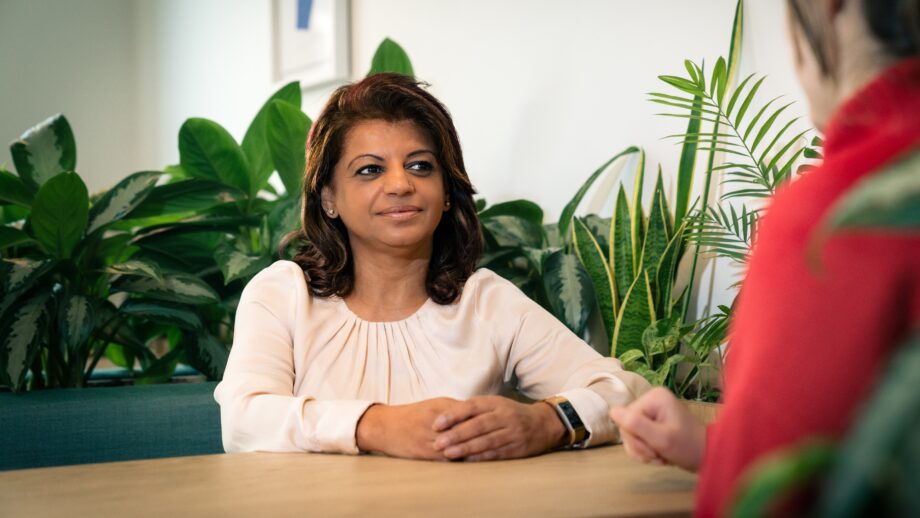MSD has provided partial funding towards the Smashing Stereotypes 2023 campaign.

Kuldip Sembhi
Strategic Programme Lead, MSD
Proving it’s never too late to pursue your dream career in science
Kuldip started her working life as a junior lab technician in the NHS before becoming a clinical research technician. After starting a family, she switched careers in her thirties, taking a job in project management at the global pharmaceutical company, MSD.
She is now National Strategic Partnerships Programme Manager at MSD, heading up the company’s effort to eliminate Hepatitis C in England.
When I was younger, I wanted to find a cure for cancer. My dad died suddenly from kidney cancer when I was 15; by the time it was diagnosed, it was too late. The experience devastated my family and motivated me to pursue a career in pathology and biomedical science.
As a daughter of first-generation immigrants from India that came to the UK in the 1960s, I had been guided by my parents to follow a career in teaching so that it would be easier for me to take time off in the holidays when I had children. But following my father’s death, I started reading about cancer and the science behind how cells multiplied. It fascinated and inspired me.

At school, I asked if I could do work experience in a hospital laboratory. And that’s precisely where my career began! I was only 18 years old when I started in the NHS, as a junior technician. I worked my way up to a senior biomedical scientist and then to senior clinical research scientist, doing day and evening courses, getting state registration, and obtaining my fellowship in haematology and transfusion. I was lucky enough to work with some amazing people at every step of the way; people who guided and helped shape my career.
I spent the next few years in research and development, trying to find out why cell abnormalities occurred, and identifying candidate molecules in clinical trials to address those abnormalities and diseases.
My whole career has been about taking on challenges and smashing stereotypes. After a decade in the NHS and clinical research, I put my exciting career on hold to have a family and now have three grown-up children. The next challenge was starting a completely new career in my thirties!

Joining the global pharmaceutical company, MSD, presented a new start and a new career path in project management. I was able to use my scientific and clinical background to find roles that could benefit from scientific exchange or the translation of clinical data and outcomes into patient benefits.
As part of my role, I am able to work on large-scale projects that bring together innovators, industry and the NHS to tackle some of the biggest challenges facing public health. It is fantastic to be able to incorporate things like technology-enabled care and artificial intelligence to address the burden of long-term conditions. These projects have taught me that I’m calm under pressure, enjoy doing multiple tasks, and that I’m solutions-orientated. Really useful skills when leading large-scale national programmes, apparently!
Now, I lead MSD’s activities toward the Hepatitis C elimination programme, focused on finding and identifying people who are unknowingly living with the virus. We support people who have been diagnosed with Hepatitis C, and reach out to marginalised groups. There is a stigma associated with patients with Hepatitis C which means many of them don’t typically engage with health services. We take portable rapid testing out to vulnerable people such as homeless communities which shortens the time from diagnosis to treatment; we then use our “case-finding data audit tool” that searches electronic health records for potential risk factors – the first to achieve 100% coverage of GP practices in England.

This work involves so many people. We connect patients, patient organisations, local authorities, public health authorities, health technology companies, NHS organisations, drug and alcohol treatment services, pharmacies and more. It is an innovative, ground-breaking, ambitious and most of all collaborative programme, which has united a huge number of people behind a single mission.
My idea of innovation is not necessarily to create something new, but to explore what is already out there and then find ways to link them up to achieve a better result – a bit like joining the dots! I get joy out of helping and sharing my experiences with others. If I can help them in any way, I will.